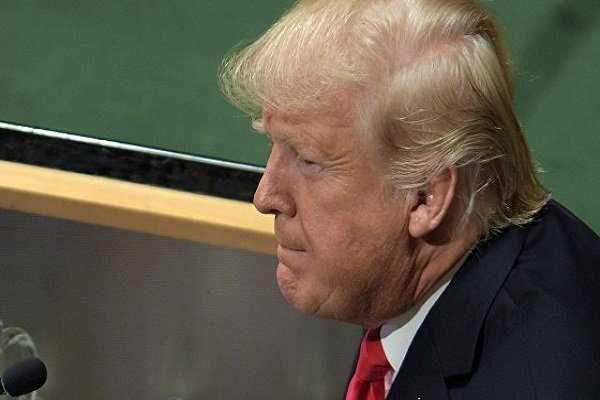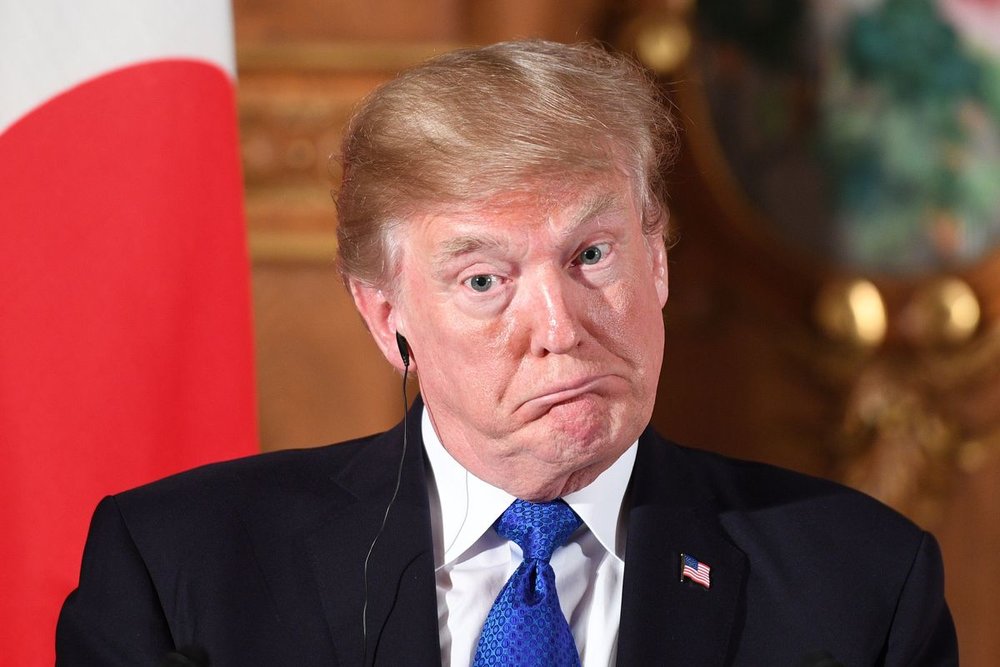Ali Rizk
The last few weeks have witnessed intensifying Israeli rhetoric regarding Hezbollah and its alleged receipt of “precision guided missiles” from Iran. Israeli media outlets have stated that Iranian cargo planes made direct flights recently to Beirut, carrying advanced weapons for the Lebanese movement.
At the same time Israeli Channel 10 has noted that the Israeli military operation currently underway dubbed “Operation Northern Shield”—which the usurper regime of Israel says is meant to destroy underground tunnels that Hezbollah had dug for future offensive operations—may be a prelude to a far bigger Israeli operation aimed at dealing with Hezbollah’s efforts to acquire precision guided missiles. Ali Rizk, a contributor to Al-Monitor and Al-Mayadeen, has written for other outlets including the Lebanese dailies Assafir and Al-Alakhbar. He has more on Israeli attempts against the anti-terror movement of Lebanon, Hezbollah, under the heading of “Israel’s latest campaign against Hezbollah: An utter failure?”
Some revealing developments have taken place in the midst of this Israeli campaign which do not appear to be in Israel’s favor. This perhaps explains why Israeli Prime Minister Benjamin Netanyahu recently claimed that Israeli efforts have succeeded in preventing Hezbollah from acquiring large numbers of precision guided missiles, thereby indicating that a large scale Israeli military operation will not be taking place any time soon.
One of the most revealing of these developments relates to the U.S. position. As Israeli officials were hyping the Hezbollah threat, the U.S. Congress—traditionally famous for its pro-Israeli credentials—had its priorities elsewhere. Instead of joining the Israeli chorus, the Senate took aim at Saudi Arabia and its crown prince, Mohammad bin Salman (MBS)—ironically perceived more and more as an ally of the brutal and child killer regime of Israel. The Senate passed a resolution on December 13 calling on the Trump administration to halt its support for Saudi Arabia’s war against the Ansarullah movement and the revolutionaries in Yemen. At the same time the Senate passed a resolution which held MBS responsible for the killing of Saudi journalist Jamal Khashoggi.
One of the most revealing of these developments relates to the U.S. position. As Israeli officials were hyping the Hezbollah threat, the U.S. Congress—traditionally famous for its pro-Israeli credentials—had its priorities elsewhere. Instead of joining the Israeli chorus, the Senate took aim at Saudi Arabia and its crown prince, Mohammad bin Salman (MBS)—ironically perceived more and more as an ally of the brutal and child killer regime of Israel. The Senate passed a resolution on December 13 calling on the Trump administration to halt its support for Saudi Arabia’s war against the Ansarullah movement and the revolutionaries in Yemen. At the same time the Senate passed a resolution which held MBS responsible for the killing of Saudi journalist Jamal Khashoggi.
But what is more worrying for Israel is the announcement made by U.S. president Donald Trump on December 19 that he’s ordering U.S. forces to withdraw from Syria. One clear implication of Trump’s decision, which is no doubt comforting for Hezbollah, is that National Security Advisor John Bolton doesn’t have Trump’s ear and is not calling the shots.
Bolton had stated last September that U.S. troops will not be leaving Syria “as long as Iranian troops are outside Iranian borders, and that includes Iranian proxies and militias” (read: Hezbollah as per the US standpoint).
Bolton had stated last September that U.S. troops will not be leaving Syria “as long as Iranian troops are outside Iranian borders, and that includes Iranian proxies and militias” (read: Hezbollah as per the US standpoint).
During the July 2006 Lebanon War, Bolton was U.S. ambassador to the United Nations under then-President George W. Bush. During this war Bolton was an ardent supporter of Israel, with reports emerging that he even collaborated with the Israelis in secret against a draft resolution (which apparently had the backing of then U.S. secretary of state Condoleezza Rice) to reach a ceasefire.
Hence the fact that Trump overruled Bolton and announced the U.S. withdrawal from Syria means that the Zionist regime of Israel may not enjoy as much leverage in the White House as it might have believed.
“An utter failure.” This was how a Hezbollah official described the latest Israeli campaign against the Lebanese movement. The official, who spoke on condition of anonymity, noted that the “intimidation against Lebanon had failed.”
Senior Lebanese officials indeed abstained from making any criticism of Hezbollah despite Israeli claims that the movement was jeopardizing Lebanon’s security.
Lebanese President Michel Aoun referred to Israel’s ongoing violations of Lebanese sovereignty, while stressing at the same time his country’s commitment to United Nations Security Council Resolution 1701, which brought an end to the 2006 war. Lebanese Prime Minister Sa’d Hariri issued a similar statement and condemned Israel’s air and sea violations of his country.
Lebanese President Michel Aoun referred to Israel’s ongoing violations of Lebanese sovereignty, while stressing at the same time his country’s commitment to United Nations Security Council Resolution 1701, which brought an end to the 2006 war. Lebanese Prime Minister Sa’d Hariri issued a similar statement and condemned Israel’s air and sea violations of his country.
The Hezbollah official also made mention of the fact that Israel had failed in getting the Security Council to take action against Hezbollah. The official was referring to a special session held by the Security Council on December 19, whereby Israel called on the Council to designate Hezbollah a terrorist organization. The Council abstained.
This same official went on to assert that “Netanyahu had limited options,” expressing his belief at the same time that the “factors on the ground” do not indicate than an Israeli war on Lebanon is imminent.
Representatives of the UN peacekeeping force in southern Lebanon, otherwise known as “UNIFIL,” also seemed to play down the likelihood of an imminent conflict between Israel and Lebanon. UNIFIL spokesman Andrea Teneti said that based on the “tripartite meetings”—which take place periodically between UNIFIL and representatives from the Lebanese and Israeli militaries—there appears to be “no appetite for conflict.”
Teneti stressed that UNIFIL was doing its utmost to implement its mandate—which is to monitor the cessation of hostilities following the end of the 2006 war, in accordance with Security Council Resolution 1701. And while emphasizing that UNIFIL takes all concerns seriously and was not turning a blind eye, Teneti added that the UN peacekeeping force had seen “no evidence of smuggling weapons” in their area of operations in southern Lebanon; Israeli officials have previously stated that weapons were being smuggled to Hezbollah in that area.
The UNIFIL spokesman pointed out that no such evidence had been found despite the fact that UNIFIL conducts 450 “activities per day”—which amount to 14,000 per month.
Regarding Israeli claims about the Lebanese Hezbollah stockpiling weapons in civilian areas in southern Lebanon, Teneti underscored that searching private property was not part of the UNIFIL mandate. He also played down the likelihood of this factor changing any time soon, pointing out that any such changes to the UN mandate would require the approval of the Security Council along with all the countries contributing troops to the UNIFIL force.
However, just recently a Hezbollah official has warned Israel against invading Lebanon, saying the resistance movement is strong enough to block any military aggression and retaliate against it. Hassan Hoballah, a member of Hezbollah’s political bureau, said “The days when Israel could simply attack Lebanon are over, even though the initiative to attack is in Israel’s hands.” The remarks came hours after the Israeli army launched an operation along Lebanon’s border under the pretext of “cutting off” what it claims are Hezbollah tunnels near the occupied territories.
Chief of Staff of Israeli military, Lieutenant General Gadi Eizenkot, claimed that the so-called Operation Northern Shield had been launched before the tunnels were operational and “became an immediate and direct threat to northern communities and army bases.”
Elsewhere in his comments, Hoballah stressed that Hezbollah fighters are capable of blocking any Israeli assault and launching counter-attacks on the enemy. He added that the resistance forces are on “a constant state of alert and surveillance, and are assessing the situation.” The Hezbollah official also noted that the movement’s course of action will depend on developments in the field.
Separately, President Michel Aoun called on Lebanon’s military and security agencies to “closely monitor” the situation in the country’s south. Lebanon’s official National News Agency (NNA) reported that Aoun had held several phone calls with government officials and the army commander regarding the new Israeli operation. The report said “During President Aoun’s phone calls, the situation was evaluated in light of the available information about the objectives of the Israeli operation and security agencies were asked to closely monitor the situation”.
Additionally, the Lebanese army command said that it is watching the situation closely, reiterating its readiness to confront any emergency situation. An army communiqué read, “The situation is under close follow-up.” It further pointed out that the Lebanese army units are carrying out their usual missions near the occupied lands in cooperation with the United Nations peacekeeping force, known as UNIFIL, to prevent any escalation or destabilization in the region.
Analysts have, however, raised doubt about the declared objective of the Israeli operation, describing it as an attempt by Israeli Prime Minister Benjamin Netanyahu to divert attention from the corruption scandals he is grappling with.
Prominent regional analyst Abdel Bari Atwan, the editor-in-chief of Rai al-Youm, wrote that the Israeli premier is struggling to save his own political life and avoid ending behind bars for graft by announcing such an operation.
Prominent regional analyst Abdel Bari Atwan, the editor-in-chief of Rai al-Youm, wrote that the Israeli premier is struggling to save his own political life and avoid ending behind bars for graft by announcing such an operation.
He also said the operation was launched shortly after Netanyahu’s meeting with US Secretary of State Mike Pompeo in the Belgian capital, stressing that the embattled prime minister had been in Brussels to ask Pompeo for help.
Miko Peled, a former member of the Israeli army who has now become a pro-Palestinian activist, also believes that the Israeli operation is actually meant to distract public opinion from Netanyahu’s corruption probes. Peled told Russia’s Sputnik news agency, “If you look at the Israeli papers, there are some mentions of the corruption charges. Today, it’s all southern Lebanon, it’s all Hezbollah”.









